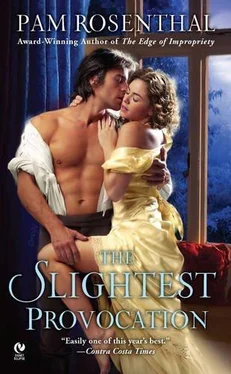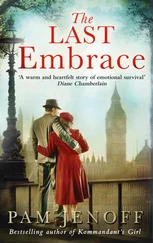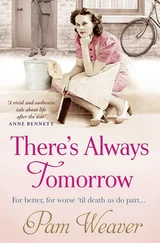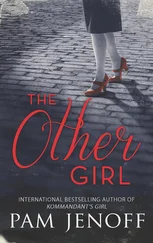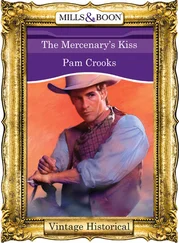“You noticed, then. Yes, she’s very happy-and I am too, for her. Her daughter, Elizabeth, had a wonderful time last night at Cauthorn, and, mirabile dictu, she wanted to tell Jessie about it. Jessie’s been floating on air ever since.”
“She’s quite the little flirt, the pretty daughter.”
Mary raised her eyebrows. “Really. Perhaps Jessica ought to have accompanied them. But we thought that with Miss Kimball there…”
“Oh, not a very bad sort of flirt. No need to worry; she kept it all within the bounds of propriety. A little giddy was all-a bit overwhelmed, having just learned the effect of her looks on a large number of young men simultaneously.”
“Did you dance with her?”
“Once. She didn’t dance much. Spent most of the time promenading about with Gerry.”
“Which couldn’t have pleased her ladyship your sister-in-law. I should imagine she has higher aims for him.”
“Actually, Susanna confided to me that if the presence of so pretty a girl could keep him at home for a while, she’d have no objection to a possible attachment. She quite likes your niece, you know, having worked so hard to transform her into less of a Penley.”
“I see.”
“But in truth, I think it’s your niece who’ll object to a too-hasty disposition of her affections. It looks to me that she’s set upon having a brilliant season next year and enjoying every minute of it. Though she does need to become a little more subtle in her flirting.”
“Like her cousin Fannie.”
“Really?” He shrugged, since for his own part he’d found Miss Fannie Grandin not at all a flirt, but on the contrary quite artless and sincere. Still, they’d fairly exhausted that conversational gambit. For how much could one say about a pair of green girls, pretty as they might be?

A bit of a relief, that, she thought. Silly, no doubt, to have worried about it.
Her turn now, to offer a topic of conversation.
“We’ve got a nice day, anyway, for our journey. There will be some more rain later in the week, they say, but…”
She heard her own voice fade in midsentence; the sudden dismayed realization on her face must have been all too patent. Had they truly been reduced to discussing the weather?
His laughter boomed out through the carriage.
“Do you remember how shy you were,” he asked, “our first time after the marriage ceremony?”
She nodded, smiling despite herself. “Such as it was-the ceremony, I mean. I don’t think we vowed to anything except that we were ‘joined in the heat of the moment.’ But yes. I was seized by a terrible fear that now I should have to do it properly, like a married woman. Whatever a married woman actually did with her husband.”
“Yes, it must have taken me… oh, a good twenty-five minutes to convince you that you were quite acceptable as you were.”
“You’re wrong. It took you an hour, at least.”
“If you insist, but it’s not true. I remember expressly.” She shrugged her shoulders.
“Of course,” he continued, “we have all day before we arrive at Wakefield.”
“Yes, obviously.”
“We could entertain ourselves by betting on it. Oh, just to pass the time. To see if Lord and Lady Christopher, public and peaceable as we are today, would take as long as an hour, to… well, to do it properly, or at least acceptably…”
“An hour, you say.” She fumbled for her reticule, to retrieve the timepiece within it.
“I’ve got a better one.”
“I noticed, a rather showy thing you must have bought to replace the one the girl pinched in Calais… oh, Kit.”
For the watch he’d pulled from his fob wasn’t at all the dreadful one of too-yellow gold that he’d used to check the time in the cottage.
This one was smaller, made of white gold and platinum and done in a quaint, old-fashioned design. She’d agonized for hours about which of the timepieces displayed upon black velvet would be the thing for his twenty-second birthday. And then felt even more of a goose after she’d chosen it. He’d had so many pocket watches stolen in the rough neighborhoods he frequented; this fearfully expensive one would probably be gone within the week. Anyway, she’d supposed it was silly to buy a gift mostly for the words she wanted engraved upon it.
I wonder, by my troth, what thou and I did, till we loved?
Unsigned, for she hadn’t liked to put her own name where the poet’s should be. (Her papa hadn’t had the faintest idea how the obscure book of sonnets had gotten into his library. No doubt as part of some job lot, he’d surmised, to flesh out the collection-someday he must catalog what was on the shelves and clear out the rubbish too. She’d been lucky, she thought now, that he’d evidently never opened the volume; if he had known the cast of the poet’s mind, he’d have snatched it out of her hands.)
Kit had laughed exultantly a decade ago when he’d read the inscription.
“It’s a good-luck piece,” he’d exclaimed, “I can feel it.”
Not that his luck at the gaming tables had improved any. But there must have been some charm about the object, for its having eluded the fingers of so many pickpockets-until Calais, at any rate.
“Thomas,” he told her now, “caught sight of a fellow selling it in the street-in Paris, of all places. He asked the dowager marchioness whether she might not like to buy it back for me. Odd, isn’t it, the way fenced goods sometimes make their way to quite distant places?”
She nodded. And equally odd how lost things sometimes made their way home again.
She might have wept that morning at Calais when he’d told her the girl had taken it-or shed a few tears simply to learn that he’d kept it with him it during all the years intervening. She might have-if she hadn’t been so determined not to allow him to provoke her.
And now that he had it back again… typical, she thought, to find herself quite without a handkerchief.
“But that’s not at all the response I’d hoped for,” he protested. “Here,” he said, “use mine. If you must cry, Mary.”
“It seems that I must.” Barely able to speak for the superfluity of tears slipping down her cheeks.
The inches of space between their bodies had melted away. His arm tightened around her shoulder while she whimpered, wiped, and sniffled; sobbed, blotted, and wiped her face again, at last tossing away the handkerchief and drawing him toward her for a very long, moist kiss.

She turned away now to fumble with the knotted shawl on the backward-facing seat.
Fixing his eyes on the hills and meadows out the window, he tried to ignore the busy little noises issuing from her side of the coach. Rustle of fabric. Slosh of liquid. A cork prised from its bottle.
And now the familiar, piquant vinegar smell. He’d always been curious. Sometime (if there were to be a sometime in their future) he should ask her exactly what she used to douse her sponge with.
Or perhaps not. Women’s business.
Of course, she’d been using it in the cottage too, quite as maddeningly insistent upon it as ever. But it felt particularly outré here in the carriage.
The smell wasn’t exactly unpleasant. In truth, it rather provoked the imagination. Exciting in its way, a bit disturbing. Images wafted toward him on currents of air-pretty white fingers moving upward past her long white thighs.
Upward. Inside her. Ah.
Even if it did rather interrupt the moment’s spontaneity.
She has every right, he reminded himself. Of course she has.
Читать дальше
